Elevating Short-Form Video Creation through Collaborative Scripting
The digital landscape has witnessed a surge in short-form video content on platforms like TikTok and Instagram Reels, making a lasting impact within...
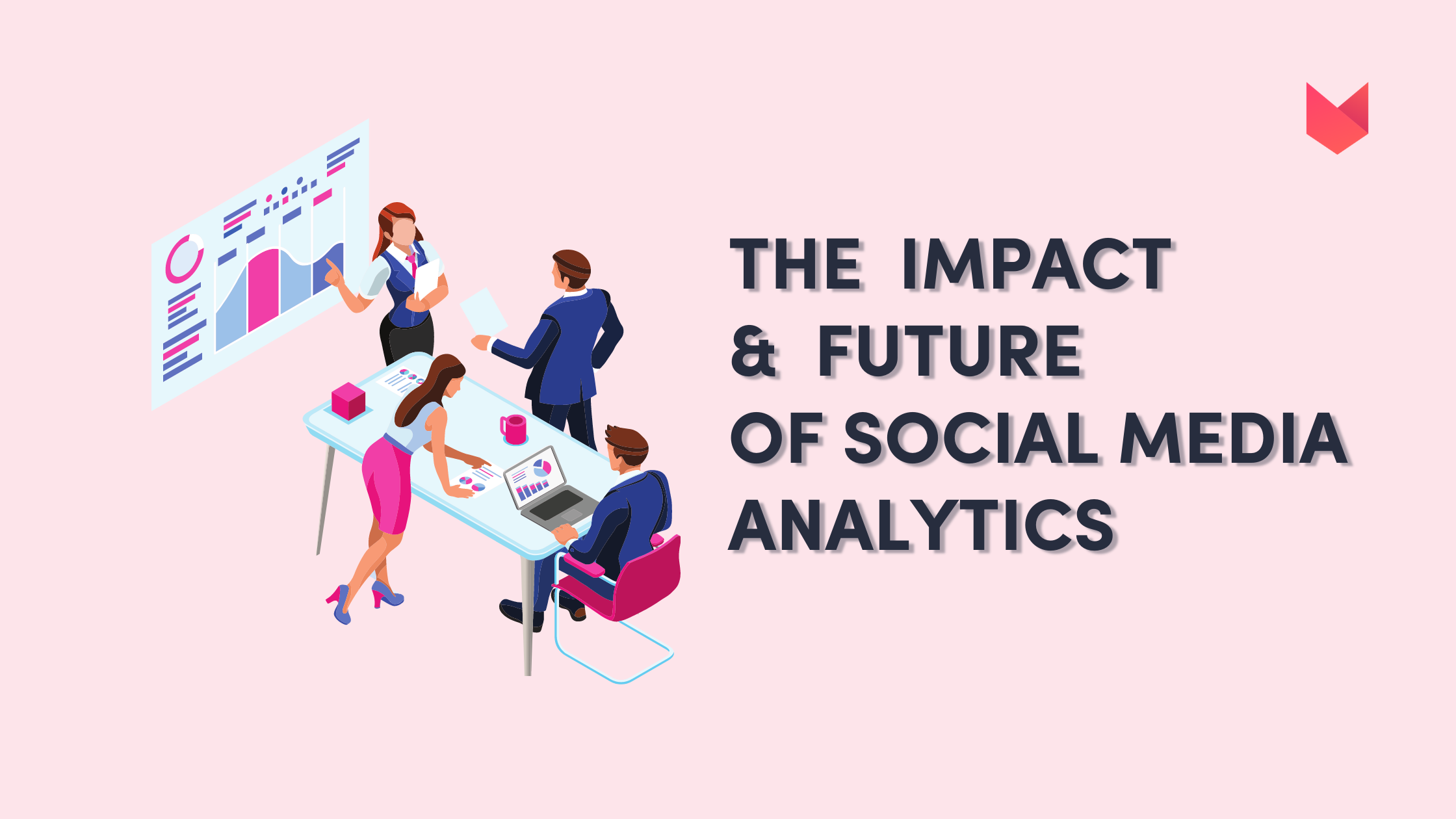
If you hope to succeed in business in this day and age, you've got to at least consider social media. There are over 4.8 billion active social media users as of July 2021. That's over 57% of the entire world's population. 😱
Even more, that's more than 9 out of 10 people who use the internet in any regard. If you knew that over 90% of a particular audience would be in one place at one time, wouldn't you want to have some sort of presence there?

That's why social media analytics are so vitally important for anyone using social media seriously.
Business owners have every reason to maintain some sort of social media presence. 54% of internet users use social media to research a product before making a purchase. 😉
Business owners aren't the only people who need to implement social media analytics, however. Whether you're selling products or services or writing a blog, you want your content to connect ⛓️. But why are social media analytics 📊 so important? And which direction is the industry heading?
If you use social media, you know what it's like to breathlessly wait for the likes, follows, and retweets to flow in. That is to say, if you're a social media user, you understand the concept of social media analytics instinctively.
There's a lot more to effectively using social media for business, however. We're going to dig deep into social media analysis to help give you an idea of how to monitor social media stats that will help you realize your business goals. 😎
Simply quantifying the number of likes a post on Instagram is a far cry from social media analytics as a discipline. Techopedia defines social media analytics as "the approach of collecting data from social media sites and blogs and evaluating that data to make business decisions."
If you dig into that sentence, an expanded and more accurate definition of social media analysis begins to emerge. Take the first half of that sentence. "the approach of collecting data", for instance.
What data are you collecting from your social media accounts like Instagram? 🤔 This question alone plays a major part in social media analytics. It's also one of the most basic that will inform every single aspect of how you and your business use social media to further your goals, whatever they may be.
That definition also influences how you're using social media as part of your larger business strategy. It's a reminder that you should have an idea of what you're hoping to achieve, which will help give you a better idea of how social media can help you realize your goals.
Techopedia goes on to talk about some potential uses for social media analytics:
Remember, simply posting something to social media and seeing how many likes it gets is less-than-useless. It might feed your ego, but it certainly doesn't fuel your bottom line. You've got to get more specific if you want your social media channels to actually be useful for your business.
There is no such thing as a boilerplate business plan or strategy. Every business is on its own journey, working to achieve its particular goal starting from where they are. Business strategies are often far more like a spiral or corkscrew than a straight line.
This means that you need to know what you need to measure from your social media networks to have any real notion of how your projects are progressing.
Imagine you've started a business selling music t-shirts using a music blog as a content marketing funnel. Ultimately, conversions are your actual goal. That's true of every business, though, and it's a process to get there.
It's a well-known and often repeated fact that it often takes an average of 3 to 4 years for a business to become profitable 🤑. So imagine that you're in your first year of running your t-shirt business. Sure, sales would be nice but that really shouldn't be your main goal.
Instead, increasing brand awareness and establishing yourself in your industry should be far more important than shopping cart clicks. This means that mentions, retweets, and reposts are more important during this stage of your business than at any other point, before or after.
For a good idea of the most common and basic social media metrics for social media analysis, take a look at the native Twitter Analytics dashboard. Other social media networks have native dashboards as well, but they usually involve signing up for a business account.
Twitter's analytics dashboard will tell you which of your posts have received the most engagement in the last month, for instance. It will tell you which of your new followers have the largest following. It will also show you which posts have gotten the most retweets.
The barebones analytics that Twitter's analytic dashboard alone can give you some useful insights for future content marketing campaigns. They're not enough on their own, however. Remember, for something to be useful from a business standpoint, it needs to be measurable, actionable, and repeatable.
This will most likely involve tracking a number of metrics as well as using some solid, time-honored marketing principles. And a little bit of science, to boot.
Say you want to sell more pairs of a low-cut Beatle boots, for example. 👢 You're not sure if a detailed, close-up photo of the boots themselves will increase conversions or if a photograph featuring a model is more compelling.
A simple A/B test will provide some useful insights 📈, and marketers have been doing this since the dawn of commerce. To truly get an accurate read on your audience's preferences, you need to eliminate as many variables as possible. You'll need to use social media scheduling software to make sure the posts go live at the exact same time each day.
Then you might run a campaign featuring each of the different photos 📷 for a week. You'll then be able to compare notes when both campaigns conclude.
💡TIP: Manage multiple pages, profiles, and accounts across social media platforms such as Facebook, Instagram, Twitter, or LinkedIn with ZoomSphere's Scheduler App.

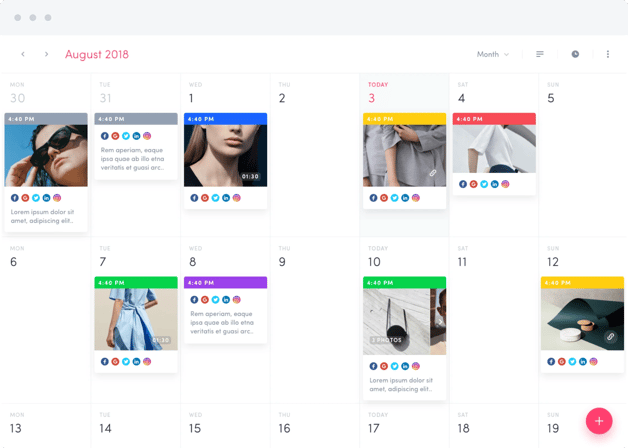
Social media metrics can be boiled down to two main categories:
Engagement tracks things like likes, retweets, and comments 💬. Awareness is for keeping track of brand awareness and how your customers are feeling about your brand.
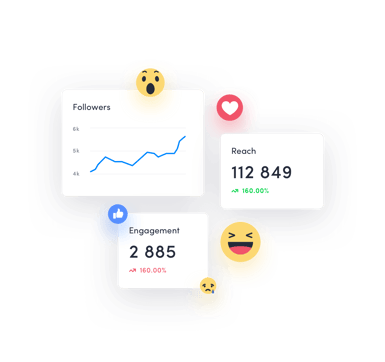
Once you've got your social media analytics strategy in place, you'll be able to conduct a more extensive social media analysis, which is where the power and potential truly become apparent.
Say you start tracking brand awareness to get a sense of how your company is perceived by your customers. You can start by tracking every time your brand is mentioned.
Social media analytics are the nervous system that allows brands to function properly. Brand monitoring provides valuable insight into what people are saying about your brand or organisation and how it's perceived in the public eye. It allows you to collect precious feedback. Knowing how and where these conversations happen is everything – nothing gets out of control if you can react to negative feedback before it becomes a crisis.
You should always care what your customers think and say and what is the overall sentiment around your organisation. It can have a significant effect on how successful you might be.
Tracking mentions on the internet, monitoring your brand and competition – all this is crucial in today's world.
💡TIP: ZoomSphere's Mentions App is a fantastic tool that helps you never miss important conversations about your brand or products across the internet. And yeah, it works in different languages! 😍
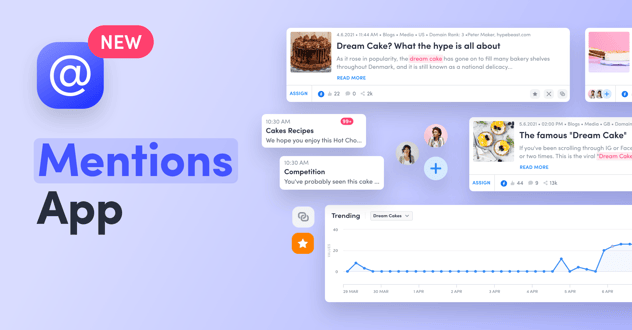
Once you've got social media analytics up and running in your organization, you can put these building blocks together in a number of complex ways. These configurations will play an important role in how social media analysis is used, going forward.
Social media analytics also play an important role in personalization, which is becoming increasingly important in the era of personalized recommendations and virtual assistants. Once you've got a social media analysis platform in place, you can build all manner of in-depth portfolios on individual customer's preferences.
Social media analytics are so vital if you're serious about succeeding in business. If you don't have them in place, you're basically just creating another task for yourself with no real idea of how it's actually affecting your business.
We've all got way too much to do as it is. Technology is supposed to free us from work, not create more for no identifiable purpose. That is exactly why we created the ZoomSphere's Analytics App. 😜 Analytics App is here to provide deep-dive insights into your social media accounts and their performance.

Strong communication is built on strong data, and in ZoomSphere, you can find more than 150 metrics from various social media platforms. Here are the supported channels:
Facebook – data provided from Facebook Insights
Instagram (Feed + Stories) – data provided from Instagram Insights. Make sure your IG account is a Business one and it's linked to an existing FB page you manage. Learn more
YouTube
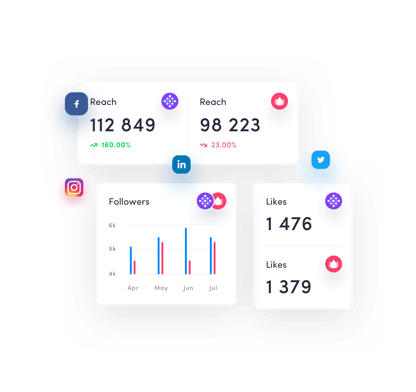
Social media analytics also play a major role in emerging disciplines like AI. Customers expectations continue to rise with each passing year. Customers expect better service than at any point in history. They also expect it faster and want it available around the clock.
With that in mind, social media analytics are becoming increasingly mandatory to even participate in business, let alone succeed. Now is an excellent time to put a platform into place if you haven't already!
💡TIP: If you are interested in your competitors analytics, then Benchmarking App is what you are looking for! Get ahead and analyze how your competitors perform on Facebook, Twitter, and Instagram. 💪😉

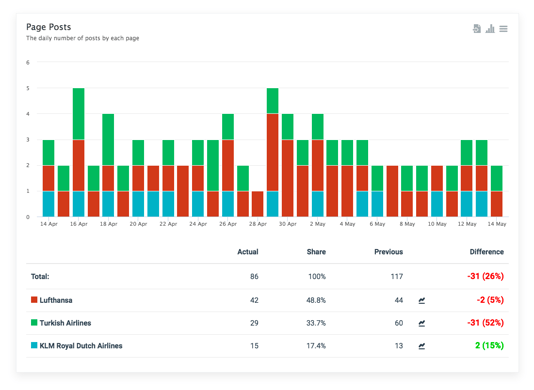
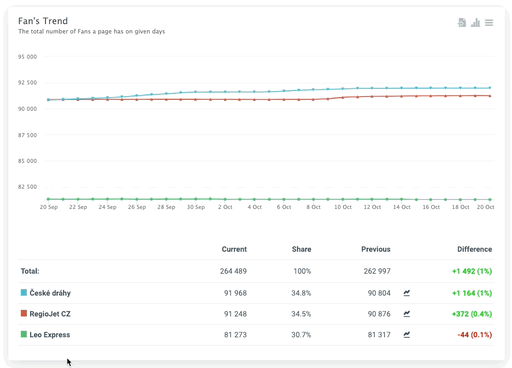
Social media is one of the most powerful tools a business owner can have. It gives you abilities Madison Avenue moguls would have swooned for 100 years ago. They're available anywhere, at any time, as well.
If you're ready to find out how social media analytics can help you realize your business goals and dreams, start a free trial today!
Last, but not least, we in ZoomSphere know, that actions speak louder than words, that's why we are also providing you a great blog post about a list of Social Media Analytics Tools out there, which naturally includes our Analytics App. Read the blog post here.
The digital landscape has witnessed a surge in short-form video content on platforms like TikTok and Instagram Reels, making a lasting impact within...
In the dynamic world of social media marketing, the relationship between agencies and clients thrives on a foundation of transparency. It’s a conduit...
Digital marketing has grown 30% faster than other sectors of marketing (according to Social Media College). If you’re wondering why that is, I blame...